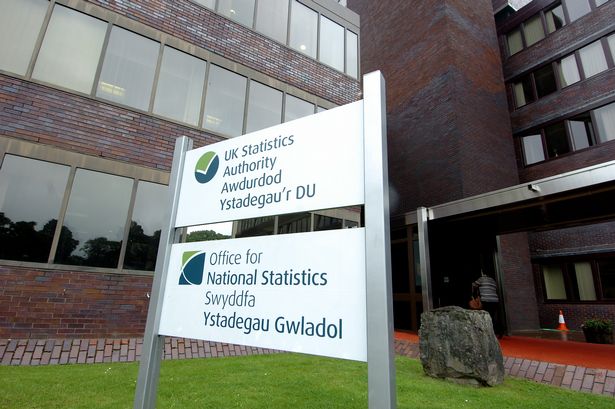Twelve drummers drumming, five gold rings, two turtle doves; Christmas really is all about numbers. So, to kick off the festive season, the Office for National Statistics (ONS) has dug out a feast of seasonal stats.
Christmas festivities start with the shopping and it’s good news for manufacturers with many of us buying a vast range of food and products with the festive season in mind. Throughout last year, UK manufacturers sold 12.7 million kilograms of fresh, chilled or frozen turkeys. If we assume that the average turkey weighs about five kilos, that’s over two and half million birds, not counting those imported from abroad.
Of course, many items are bought right across the year, but especially at Christmas – for example in 2021 manufacturers sold 1.7 million kilograms of gingerbread and no less than 20 million kilograms of filled chocolates (which doesn’t include chocolate biscuits or confectionery bars).
Makers of miscellaneous ‘articles for Christmas festivities’ (which doesn’t include natural Christmas trees) saw sales of £8.3 million last year, though both 2020 and 2021 were well down on 2019’s £23.7 million, perhaps as a result of the pandemic curtailing the celebrations. And if last year you bought your kids an electric model train, a scale model assembly kit, or a construction set, you might have contributed towards the 2021 sales total of £23.9 million. Or if you got them a teddy bear or a plush unicorn, that could have fed into sales of £3.7 million for ‘toys representing animals or non-human creatures’. UK manufacturers’ overall sales of toys and games in 2021 were up 20% in cash terms on those in 2019 – the last pre-pandemic year.
Some of us will be enjoying our favourite tipple over the festive period too. If wine is the drink of choice, that now comes in at around £4.27 per 175ml glass, £1.05 more than a decade ago in December 2012.
And if you’re buying carrots for Rudolph and the Christmas dinner, you’re in luck as they have actually gone down in price over the last 10 years, with a kilogram now setting you back about 61p, which is 29p less than in December 2012.
Wages and Christmas working are next on the list – and if Mary and Joseph lived in the UK today they would be living on Joseph’s carpenter’s wage of around £536.80 a week. As for Mary, while we don’t have a value for unpaid family work in 1st-century AD Galilee, unpaid childcare in the UK had a value of over £350 billion as far back as 2016.
Typically, over a million Brits work on an average Christmas Day, with high proportions among sectors such as health and social work, hospitality, farming and public administration (which includes groups such as police and prison officers and the fire service). Boxing Day usually sees many more retail sector employees working than the day before. But, due to the pandemic and the associated rules around tiers and bubbles, the festive seasons in 2021 and (especially) 2020 probably weren’t typical.
Christmas marks the birth of a special baby and ONS data show that 1,235 babies in England and Wales were born on Christmas Day last year. The most common date of birth last year was 23 Sept with 2,055 births.
When it comes to seasonal baby names, Ivy is the most popular overall, followed by Joseph and Gabriel. Last year, three baby boys were given the name Jesus in the UK and 148 baby girls were named Mary.
While Christmas is a special day for Christians, some of its traditions also have pagan origins. Among the 405,000 (0.7% of the overall population in England and Wales) who chose to write a response in the “Any other religion” box, 74,000 were Pagans.
Meanwhile on Christmas Day last year, there were 21,809 visits to the ONS website – proving that, for some people at least, Christmas really is all about stats.
“But stats aren’t just for Christmas,” says National Statistician, Sir Ian Diamond.
“As the UK’s largest independent producer of official statistics, the ONS has the nation covered with a wealth of information about our society and economy all year round.
“From helping people understand what changes in our economy mean to them, to informing on the health and wellbeing of the nation, our work doesn’t stop.”
Help keep news FREE for our readers
Supporting your local community newspaper/online news outlet is crucial now more than ever. If you believe in independent journalism, then consider making a valuable contribution by making a one-time or monthly donation. We operate in rural areas where providing unbiased news can be challenging. Read More About Supporting The West Wales Chronicle























